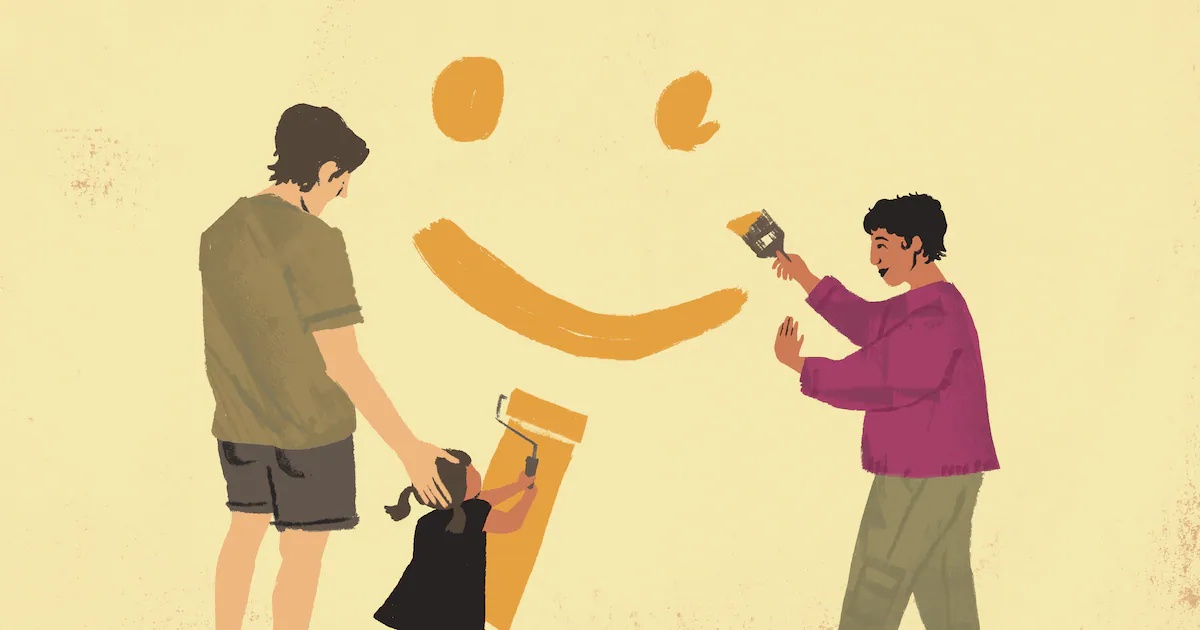Copyright Salt Lake City Deseret News

Marriage and family therapist Tony Mosier went through a rough patch where he felt joy was elusive. He wasn’t as happy as he wanted to be because of a personal crisis and had “difficulty in finding lasting and sustained happiness.” Life was a chronic-stress whirlpool for about a year, he noted. He wanted something different. His work as a therapist also put him in touch with others who needed to boost their happiness. So the self-proclaimed “data nerd” — “I believe in research” — set out to absorb the plethora of studies that had been conducted on what improves happiness and what people can do to harness its power. “My whole career I’ve spent dealing with families that are in crisis and they’re desperate for happiness for their own child,” he said. He wanted to know what stringent research really showed. When you talk to people, they see happiness through their own familiar lens, he said in an interview. His dad is religious and would say to pray. An athlete would say “go train” for something. A Zen Buddhist would likely recommend meditation. In late October, he distilled some of what he learned about improving one’s sense of well-being, crediting the book “The How of Happiness” by Sonja Lyubomirsky for the actual list, but adding his own ideas, experiences and research during a presentation at the Utah Fall Conference on Substance Use, held in St. George. The Deseret News asked him to elaborate on his presentation and what part of happiness can be crafted. He also created a happiness assessment that anyone can use to see if the principles that promote happiness are “hard-baked into the environment” where one wants to see improvement. At work, at school, at home, or church, in a youth group or pretty much anywhere at all, “logic would suggest that if you can start to really intentionally bring in some more of the principles, then the people in that environment are going to, as a natural byproduct, be happier,” Mosier said. He warned the packed room at the conference that trying to master all of the steps simultaneously is not only daunting, but has potential to be defeating. “Choose two or three things to work on at once,” he said. “If you do too much, you’ll do nothing.” Best of all, the steps to happiness are all simple, he added. And shockingly inexpensive, too. The myths of happiness There are myths and misunderstandings related to happiness. A big one is the idea that happiness is out there somewhere and you have to go find it. “If you look at these 12 things, they’re all right in front of your face and they’re applicable today. You don’t have to go anywhere to find it or learn it,” he said. “It’s just about applying it.” The other big myth is that you either have it or you don’t. “Reality is you can get it,” he said. Each person has a baseline temperament, but it’s malleable with some effort, according to Mosier, chief operating officer and cofounder of Telos, a youth and young adult mental health treatment program in Orem, Utah. He said research shows that half of one’s happiness is genetic, 10% is circumstance and 40% can be molded by applying happiness-growing principles. “We can’t always control our circumstances and we certainly can’t control our genetics, but we have this 40% solution right in front of us and that’s a pretty big lever to be able to change your happiness level.” The steps to happiness Here are the 12 suggestions, with an explanation from Mosier on how they boost happiness. With the exception of the first one, he said, they’re in no particular order: Express gratitude. That’s No. 1 for creating happiness, Mosier said, “because when I really step outside of myself and look at my problems, they’re such first world problems.” He said that “study after study finds that in almost all cases, no matter how bad or how good someone has it, they find problems. It’s the way our brains are wired. “Somebody gives you a Mercedes and it’s like, ‘Oh yeah, but you know, the seats aren’t very comfortable.’” Cultivate optimism. Mosier admits he was by nature a little pessimistic, probably because he’s a little anxious by nature, too. But he’s learned that “much of success is just looking at something and saying, ‘Why not me?’” Even cooler, he noted, is the fact optimism is a choice. He said that lots of people catastrophize and worry about the future, but if you consider how many people die from disease, violence or war, “we really are in the best time in the history of the Earth. We have it so much better than at any other time.” Stop overthinking and comparing. Social media drives many of the trips down the rabbit hole, because you can find people who are better looking, seem a little happier, have kids at Yale on scholarship and possess perfect teeth, Mosier said. It’s an invitation to think, “I’m kind of a mess, I’m so far behind.” And it’s not healthy. He also cautions against the cascade that comes from “catastrophizing and awfulizing.” On your way into the office you see that staffers have walked past a soda can and other garbage on the ground. How irresponsible. What if people think you’re a shabby company? The business could close. You could lose your job. And then your home. You might end up strung out on drugs. “If you can find a way not to do that, that’s better,” he said. Do kind things for others. Studies show that when you do something against your value system, your serotonin drops by 45%. Serotonin is vital to mood regulation, contributing to happiness, well-being and contentment. Low levels contribute to depression, anxiety and mood disorders. Doing the opposite — showing kindness and generosity — releases serotonin. Mosier said that “when you do that habitually, you become a happier person in general.” A study of women who had multiple sclerosis divided them into two groups, one assigned to call and check up on the other and one group assigned to be checked up on. Those doing the service ended up happier than those receiving the service. Mind and feed your relationships. “Those who are isolated and alone really struggle to be happy, including introverts,” Mosier said. “They need to have people in their lives, too.” He noted that some people use AI companions, pornography and gaming sites to meet their need for connection. That doesn’t cut it. But real people to talk to and care about is really important. “Having meaningful, real relationships is like magic,” Mosier said. Develop coping strategies. Mosier said you could argue that the other 11 strategies are actually coping strategies. Many decades of research have shown that learning how to interrupt negative thoughts and replace them with healthier thoughts, learning how to do new things and making time to do things “that kind of fill your bucket” are all hugely important. Forgive. Mosier was surprised how important forgiveness is to a happy life. “There’s just something about clinging to the toxicity of hurt and hatred that really takes a toll on a person’s happiness — even if you’re justified in holding a grudge. It still impacts your happiness." He likes the old saw that said “holding onto hatred is like taking poison and hoping someone else dies.” Perhaps unexpectedly, research suggests men are more apt to carry grudges than women. He thinks people believe women do it more than men perhaps because they are more willing to talk about it, while men internalize their grudges. Increase “flow” experiences. A flow experience is something that’s completely absorbing and allows you to immerse yourself in a positive way. It could be a hobby or research or almost anything. At the conference, Mosier asked people where they found their flow and heard everything from crocheting to canyoneering. Savor life’s joys. If he were ordering the importance of the list, this one would come in right behind gratitude, Mosier said. The two go well together. People have a tendency to live in the future or in the past, but being fully present and mindful boosts happiness. “Anything that detaches you from the moment will decrease your happiness unless you’re detaching because you’re distressed and you’re actually detaching to feed your soul and cope with something,” he said. Commit to your goals. Studies show having a sense of purpose promotes happiness. Mosier said that “human beings need to continue to evolve and that means discomfort,” which some link to unhappiness. It’s not true. “Discomfort is necessary for our happiness and that’s part of setting goals. You have to work toward them; it takes effort.” And it builds happiness. Practice religion or spirituality. Mosier said to consider two people who are suffering in some way, one with religion or spirituality and one without. Person A sees suffering as horrible, while Person B believes that someone out there in the universe is looking out for him or her and will use the experience to make them stronger. Maybe it’s to provide more empathy to help others who suffer. Religion also connects people to a community, which goes back to nurturing relationships, he said. And religion and spirituality typically boost gratitude, acts of kindness and a health code, among other benefits. Take care of your body. Mosier said this one may have the most research behind it, including a ton of science surrounding serotonin. And “there’s so much science behind what happens just physiologically in your body when you’re taking care of it, from nutrition to the gut-brain connection. It’s super, super important.” Having learned all this, Mosier reports that he’s far happier now. His research paid off.



